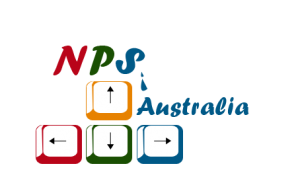
Conference Starts in:
Day(s)
:
Hour(s)
:
Minute(s)
:
Second(s)
Important Notice
CSDE and i-COSTE 2023 Booklet |
Final Booklet |
IEEE CSDE & i-COSTE 2023 FINAL Program |
Final Program |
IEEE CSDE 2023 Final Schedule |
Final Schedule |
Conference Late Registration |
: CLOSED |
Power Point Template
|
: IEEE CSDE 2023 PPT |
All Accepted and presented papers will be published in the Scopus Indexed IEEE Proceedings.
Top accepted full papers will select for publication in various Science Citation Index Extended (SCIE) and Scopus indexed journals.
The 10th IEEE CSDE 2023, the Asia-Pacific Conference on Computer Science and Data Engineering 2023, offers an ideal opportunity for researchers, engineers, academics and students from all over the world to bring the latest technological advances and applications in popular computer science and data engineering areas, as well as to network and promote the discipline. Cutting-edge researchers will present keynote speeches during a three-day program featuring tutorials and technical sessions on theory, analysis, design, testing and advances in computer science, data science and data engineering. Scholarships are offered for students to cover the cost of attending the conference and reduced registration fees apply to delegates from UN least developed countries. The papers presented at the conference will be included in the IEEE Digital Library.
This year IEEE CSDE 2023 is being held at the Shangir-La’s Fijian Resort, Yanuca Island, Nadi, Fiji. Yanuca Island is a leading tourism, business and events city boasting arguably one of the best lifestyles in the world. The island is only 43.13 km far from the Nadi International Airport. Inspiration is on the horizon, and nature is at your doorstep on the private Yanuca Island, Shangri-La Fijian Resort, Yanuca Island, Fiji, offers the essence of an exclusive island hideaway yet is conveniently connected to the mainland by a causeway. The 443 ocean-view guest rooms take their inspiration from a traditional Fijian village featuring rich local culture and nature elements. The Conference is hosted and sponsored by the Computer Society, The University of the South Pacific, Fiji; The University of Fiji, Fiji, CQUniversity, Australia; Massy University, New Zealand and NPS Australia.
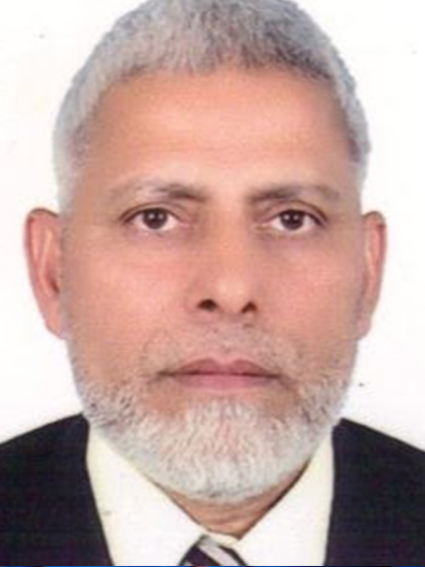
Professor Mohammad Yamin
Australian National University, Canberra, Australia
Brief Bio
Professor Mohammad Yamin obtained his PhD in Mathematics from the Australian National University, Canberra, Australia. Currently he is a professor of Management Information Systems (MIS) at the King Abdulaziz University, Jeddah, Saudi Arabia. He is also an Adjunct at the Research School of Computing of the Australian National University since 2012. During 1994 – 2009, Dr Yamin has served the Australian National University, University of Canberra in the capital of Australia. During 1997-2001, Professor Yamin has also served the Australian Federal Government Department of Human Services as a Software Analyst and Developer, and Data Administrator.
Professor Yamin has published about 120 articles, including several on Crowd Management, in leading International Journals. He is an expert on detecting and preventing stampedes in crowded events. Dr. Yamin also specializes in Cyber Privacy and Security, Road Safety Management, and Health Management with Modern technologies. In particular, he has contributed to several methods to protect privacy in the Internet of Things involving Location based Services. Mohammad has supervised several PhD students at the Australian National University, City University London, King Abdulaziz University, Management & Science University Kuala Lumpur, and Jamia Millia Islamia, New Delhi. Other areas of his expertise include Business Informatics, E-Government, E-Learning, E-Commerce, and social media. He has over 3000 citations.
Professor Mohammad Yamin is one of the two editors of the International Journal of Information technology (Scopus) published by Springer Nature (Germany). He is also the general chair of the International Conference of Information Engineering and Management (ICIEM), which has in the past held its meetings in Europe, China, and India. ICIEM 2024 will take place from 28 February to 2nd March together with INDIACom 2024 at Bharti Vidyapeeth New Delhi.
Topic
Crowd Management with Modern Technology
Abstract
Thousands of people have died in stampedes, hundreds die every year. Stampedes are primarily caused due to the lack of crowd management. Despite colossal loss of lives every year, there doesn’t seem to be a collective effort to prevent these deaths. Unfortunately, whenever a stampede takes place, no efforts are made to identify the causes and no one is held responsible and accountable to this crime to humanity. Every year numerous regular and irregular crowded events take place. Unfortunately, many of the historic stampedes took place in the religious crowded events like Kumbh (India), Hajj (Makkah) and Arbaeen (Iraq), to name a few.
This talk will provide a glance of some of the crowded events, discuss the root cause of disasters in the crowded events, present a framework to safely manage the events and a model of organising crowded events during crisis like Covid-19 to prevent the spread of communicable diseases.
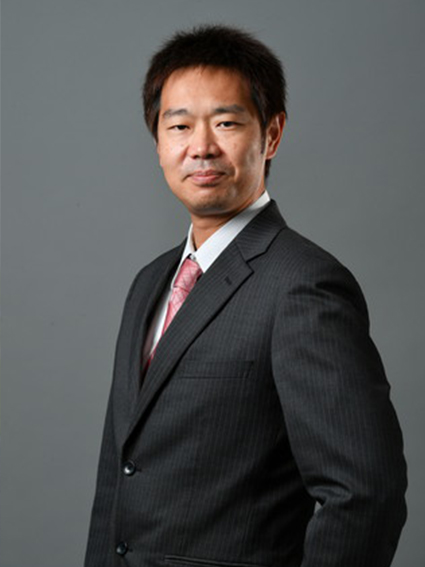
Professor Fujio Toriumi
Graduate School of Engineering, The University of Tokyo, Japan
Brief Bio
Dr TORIUMI Fujio is a Professor at Graduate School of Engineering, The University of Tokyo, Japan.
For details, please visit: https://www.u-tokyo.ac.jp/focus/en/people/people003579.html
Topic
Information Health: Tackling Misinformation and Social Challenges in
the Digital Age
Abstract
With the emergence of diverse information platforms, especially social
media, we find ourselves embroiled in severe societal pathologies such
as fake news and infodemics. At the core of these issues lies the
basic economic principle of the modern information space known as the
Attention Economy, leading to “overconsumption” and “biased
consumption” of information.
In this presentation, we will identify the issues present in the
modern digital space and introduce analyses based on large-scale data
that illustrate the actual state of these specific phenomena.
Furthermore, we discusses a concept termed “Information Health”, which
is crucial for addressing these problems. This involves realizing a
more discerning engagement with information in the modern digital
information space. The talk will also share attempts made toward
achieving Information Health, fostering a discourse on navigating the
digital information landscape in a healthier and more informed manner.

Professor Katsunori Shimohara
Doshisha University, Japan
Brief Bio
Katsunori Shimohara, Dr. Eng., born in 1952, graduated from Kyushu University, Fukuoka, Japan, in 1978. From 2001 to 2006, he was the Director of the Network Informatics Labs. and the Human Information Science Labs., Advanced Telecommunications Research Institute (ATR) International, Kyoto, Japan. From 2006 to 2023, he was a Professor at the Department of Information Systems Design and the Graduate School of Science and Engineering, Doshisha University, Kyoto, Japan. He is a Professor Emeritus at Doshisha University, Kyoto, Japan. His research interest includes creative
& imaginative communications between not only humans but also humans, “Mono” — a tangible and physically perceived thing/entity, and “Koto” — an intangible cognitively conceived thing/entity by using evolutionary computation and agent-based simulations. He is now working on community systems design focusing on relationality that people naturally generate through interactions between people, “Mono,” and “Koto” in the community, boundary and relationality perspective systems approach to System of Systems, and human-robot/agent interactions.
Topic
Relationality Design with Emphasis on Clinical Aspects: Research on Community System Design and Care-led Innovation
Abstract
We have worked on relationality design with an emphasis on clinical aspects in a local community. In research on community system design, we have introduced relationality assets as a concept to quantify and visualize relationality that people generate daily through interactions between “Hito,” “Mono,” and “Koto” in a local community and propose mechanisms to drive the generation, circulation, and communalization of relationality assets. Since people in a community are diverse in terms of age, occupation, family composition, human relations, ways of thinking, and sense of value, it is
imperative to design incentives to prompt their self-motivated involvement in community activities so that they function as a system. Rethinking the so-called equality-based approach taken so far, we propose to change it and employ the equity-based approach. Based on the premise of “Clinical Wisdom,” which focuses on locality, diversity, and embodiment, instead of “Science Wisdom,” which focuses on universality, logicality, and objectivity, I would like to discuss the inevitability of taking a clinical approach to relationality design toward creating a system of systems (SoS) in a local community and care-led innovation where we are working on research on Care as a System.

Professor Shah J Miah
Head of Business Analytics, University of Newcastle, Australia
Brief Bio
Dr Shah J Miah is a Professor of Business Analytics, Strategic Advisor to the Pro Vice-Chancellor, and Head of Business Analytics, Economics, and Politics at the University of Newcastle, Australia. He was awarded his PhD from the Griffith Business School, Griffith University, Australia. His areas of interest include in AI apps, DSS, healthcare IT, Big-data analytics, and Business Intelligence.
Prof Miah has produced over 200 publications, including research books, journal articles, book chapters, and refereed conference articles. His outstanding work has appeared in top-tier outlets of the field, such as the Journal of the Association for Information Systems, Journal of the Association for Information Science and Technology, Information and Management, Information Technology and People, and Knowledge-Based Systems. He is actively involved in the Australian business industries for various consulting and problem-solving research activities and collaborations with national and international universities.
Prof Miah has examined over 40 PhD dissertations, to date has successfully supervised 15 PhD degree completions, and is currently supervising more than 14 PhD projects internally and externally. Following the background of expertise, Shah’s strong vision of research is to promote and contribute to the impact of digital transformation and robotic automation technology design and their adaptation in business organizations and explore opportunities for new research and future collaborations for building interdisciplinary research projects. The projects are mainly focused on the merits of the four organizational capabilities: 1) business process automation; 2) exploring opportunities of big data; 3) empowering process and practice improvement enabling transparent or/and evidence-based insight/decision making and 4) improving impact of machine-driven automation, creativity, and innovations.

Profesor John Gammack
Professor, Griffith University, Australia
Brief Bio
Prof John Gammack (PhD Cambridge, 1988) is an adjunct Professor at Murdoch University in Perth, and also at Griffith University in Queensland, Australia. He has around 200 internationally recognised publications mostly concerning informatics, and was lead author of the first popular textbook in this general field. Professor Gammack is a former head of both IT and management schools, and was research director for cross-university interdisciplinary groups specialising in Internet studies and in user and societal (IT) needs. Currently John spends time at various Chinese institutions as a visiting faculty member, and continues his research in informatics and digital life.
Topic
Changing nature of AI powered business research: An emerging problem-solving paradigm
Abstract
Artificial intelligence (AI) is changing the landscape of business operations by reinforcing digital innovations, such as for optimizing practices. With the increasing availability of consumer and business big data, various data context, and rapid progress of smart machine learning algorithms, the big data analytics with its various robotic process have shown unprecedented support, guidance, value-adding and meaningful analysis for operationalizing business practices with their future directions. Digital innovations, when combined with AI or big data analytics and applications from various deep learning algorithms, business owners or decision makers and strategic personnel in this sphere are constantly being inspired to enable the development of smart provisions. The smart solution provisions result in high-quality information service delivery for predicting new insights with evidence-based recommendations to open new discoveries that enable new horizon for maximizing business benefits. This keynote talk will showcase five projects to explain various research cases for bringing them together in generating more complementary research platforms for inspiring new problem-solving researchers with some guidelines and methodologies for co-creating more practical avenues of business data research.
Title: Understanding Generative AI and its Transformative Power: from ChatGPT to ProcessGPT
Estimated duration of the tutorial : 2 Hours
This tutorial presents an insightful exploration into Generative AI, shedding light on its role in reshaping business process management. We commence with a foundational understanding of Generative AI, touching upon its distinctive features and practical uses. The session traces the progression from the influential ChatGPT to the cutting-edge ProcessGPT, highlighting their respective contributions to technology evolution. Emphasizing ProcessGPT, the tutorial underscores its significance in automating workflows, refining strategic choices, and boosting operational productivity. Participants will gain perspectives through concrete case studies, demonstrating the real impact of Generative AI on diverse sectors.
Prof. Dr. Amin Beheshti is a Full Professor of Data Science at Macquarie University, and Adjunct Professor of Computer Science at UNSW Sydney, Australia. Amin is the founder and director of the Centre for Applied Artificial Intelligence, the head of the Data Science Lab, and the founder of the Big Data Society at Macquarie University, Sydney, Australia. Amin completed his PhD and Postdoc in Computer Science and Engineering at UNSW Sydney, and holds a Master’s and Bachelor’s degree in Computer Science, both with First Class Honours. Before starting his PhD in 2009, Amin had 9+ years of industry experience as a founder and CEO, consultant, and Solution Architect in national and international organizations. Alongside his teaching activities, Amin has made significant contributions to research projects and successfully secured 40+ research projects (Total Research Funding: $24,493,093.00). Amin received prestigious awards, including Excellence in Research Innovation, Partnership & Entrepreneurship (Macquarie University, 2022), National Security Impact Award (D2D CRC, 2016 and 2017), Recognition Award (D2D CRC, 2016 and 2017), Australian Postgraduate Award (APA 2009-2012), and Best Paper awards. In 2021, due to his outstanding performance, Amin was promoted from Senior Lecturer to Full Professor at Macquarie University. As a distinguished researcher in Data and AI Science, Amin has been invited to serve as a Keynote Speaker, General-Chair, PC-Chair, Organisation-Chair, and program committee member of top international conferences. He is also a leading author of several authored books in data, social, and process analytics, co-authored with other high-profile researchers.
- Beheshti, et al. “ProcessGPT: Transforming Business Process Management with Generative Artificial Intelligence”, The International Conference on Web Services (ICWS), Chicago, 2023.
- Beheshti, “Empowering Generative AI with Knowledge Base 4.0: Towards Linking Analytical, Cognitive, and Generative Intelligence”, The International Conference on Web Services (ICWS), Chicago, 2023.
Journals
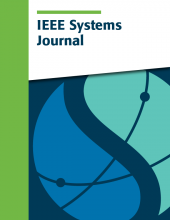
IEEE Systems Journal
Impact Factor: 4.8
The IEEE Systems Journal (ISJ) is the technical journal of the IEEE Systems Council and is published quarterly.

Energy Sustainability
Impact Factor: 3.9
Sustainability is an international, cross-disciplinary, scholarly, peer-reviewed and open access journal of environmental, cultural, economic, and social sustainability of human beings.
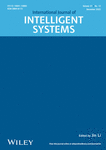
International Journal of Intelligent Systems
Impact Factor: 8.7
Special Issue on Deep Learning-Driven Knowledge Graphs for Intelligent Computing and Applications.
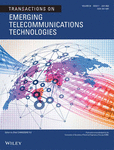
Transactions on Emerging Telecommunications Technologies
Impact Factor: 2.6
Special Issue on Blockchain Communication Security.
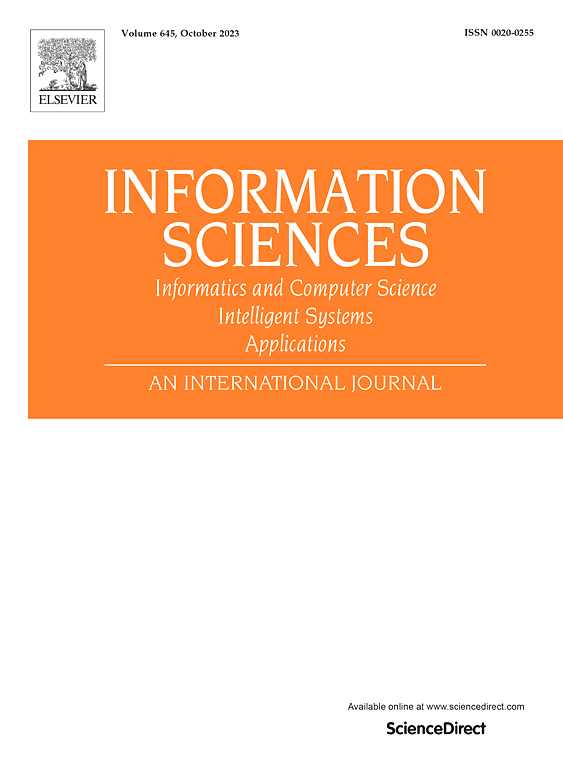
Information Sciences
Impact Factor: 6.9
Special Issue on Privacy Risk Evaluation of Intelligent Algorithms.

World Wide Web
Impact Factor: 2.7
Special Issue on Blockchain Communication Security.
See you in fiji




